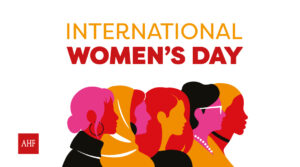Pain is one of the health problems that most deteriorates people’s quality of life and the worst thing is that it is totally subjective, that is, there is no technological tool capable of measuring the amount of pain that a person feels, so that it needs to be explained.
Among those living with HIV, certain types of pain occur more frequently, either due to the damage that the virus does to the body, or due to some opportunistic infections or taking some of the antiretroviral drugs.
Fortunately, there are several treatments to relieve this symptom, but it is important to identify the cause of the pain to determine how to address it. You should leave this task in the hands of your medical team.
Various causes
The type of pain, its location and its severity are sometimes different from person to person, explains the Medical News Today website, dedicated to disseminating medical information.
Because HIV attacks the immune system, if left untreated, the immune system may gradually lose its ability to protect the body from infection and disease. Many people with HIV (53% according to one study) experience long-term and chronic pain. The most common sites of onset of pain are the joints and the back.
While untreated HIV can cause significant episodes of pain, antiretroviral and other drugs given to those living with the virus can also cause pain.
On the other hand, when left untreated, people with HIV are at risk of developing opportunistic infections, which are accompanied by inflammation and pain.
Types of pain
In general, the most frequent pains reported by people with HIV are:
• Headache. It can range from mild to severe, and can present as intense pressure, tension, or a throbbing sensation. Causes of this pain include, for example, a weakened immune system or HIV-related illnesses.
• Pain in joints, muscles and bones. Arthritis and osteoporosis are common in people with HIV. These are two diseases that can cause pain in the joints, muscles and bones. It is known that this type of pain can also appear with age.
• Stomach ache. When treatment is not received and HIV affects the immune system, opportunistic infections appear and many of them occur in the digestive system, causing inflammation and stomach pain. Some antiretroviral drugs can also cause abdominal cramps.
• Peripheral neuropathy. One of the effects of HIV is damage to the peripheral nerves of the body, leading to a neurological disorder called peripheral neuropathy. This is the most common neurological complication in people with HIV, and its symptoms include numbness or pain in the hands and feet, muscle weakness in the hands and feet, numbness or tingling in the extremities, and increased sensitivity to pain.
Available Treatments
Depending on the type and intensity of pain, your medical team will decide which treatment is right for you. The prescription can range from the most common pain relievers to certain controlled medications, but the cause of the pain must always be taken into account.
Antiretroviral treatment can be considered a pain prevention agent, since by reducing the amount of virus in your body, it prevents HIV from spreading enough to start damaging your body. Remember that antiretroviral drugs, in general, help preserve your health for much longer in the best possible conditions.
However, it is also true that some antiretroviral drugs can increase sensitivity to pain or cause painful side effects (such as gastrointestinal discomfort). To control them, your doctor will prescribe the appropriate pain relievers, either over-the-counter or those you can only get with a prescription.
If it’s helpful for you, you can also turn to non-drug therapies, like massage. You can even resort to some home remedies such as:
• Practice meditation or breathing exercises to relax
• Apply cold or warm compresses to the affected area
• Take lukewarm baths
• Get regular physical activity
• Limit alcohol consumption
And if you are going to use any other option, always discuss it with your doctor to make sure it doesn’t interfere with your HIV treatment.
Remember that at AHF Latin America and the Caribbean we work to bring HIV services closer to people who need it. If you live with HIV and have not started your antiretroviral treatment, or if you suspended it and want to resume it, come to our offices in your country and we will advise you.






